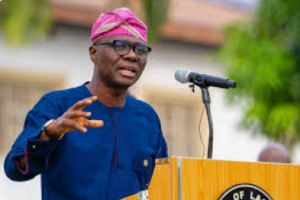 The Nigerian Communications Commission (NCC) disclosed that data consumption in January 2024 reached an unprecedented 721,522 terabytes, setting a new monthly record.
The Nigerian Communications Commission (NCC) disclosed that data consumption in January 2024 reached an unprecedented 721,522 terabytes, setting a new monthly record.
This figure surpassed the previous high of 713,200 terabytes recorded in December 2023, signifying a remarkable surge in digital activity.
According to data obtained from the NCC’s official website, the number of active internet subscriptions also witnessed a substantial increase. January 2024 saw a total of 161,977,883 subscriptions, showcasing notable growth compared to the 156,244,368 subscriptions recorded in the same month of the previous year.
The internet subscriptions encompassed various service providers, including mobile telecommunications companies (telcos), Internet Service Providers (ISPs), Voice over Internet Protocol (VoIP) providers, and fixed-line connections. Among these, mobile subscriptions accounted for a staggering 161,504,390, while wired or wireless ISPs recorded 213,876 subscriptions. Additionally, fixed wire connections totaled 21,437, and VoIP subscriptions reached an impressive figure of 238,180.
Despite a slight decline of 1.9 million internet users in January 2024 compared to December 2023, as indicated by the NCC, the total number of internet users remained significant, settling at 161.9 million. This figure highlights the robust internet penetration rate of 42.53 percent, with broadband subscriptions reaching an impressive 92,195,937 million.
Analyzing the market share by network generations, the data revealed that while 2G connections remained dominant at 57.78 percent in January 2024, the proportion of 4G subscriptions continued to rise steadily. In December 2023, 4G subscriptions accounted for 31.33 percent, and by January 2024, they had increased to 31.75 percent, indicating a growing preference for high-speed connectivity.
The report also unveiled the presence of 5G subscriptions, which constituted 1.11 percent of all connections in Nigeria in January 2024, up from 1.04 percent in December 2023. However, the International Telecommunications Union (ITU), a specialized agency of the United Nations, recently highlighted Africa’s limited 5G coverage, standing at a mere 6 percent as of December 2023. This disparity is attributed to the prevalence of older mobile technologies, specifically 2G and 3G networks, across the continent.
The ITU report emphasized the enduring reliance on 2G and 3G networks in many African countries, including Nigeria, in contrast to their phased-out status in developed nations. These legacy technologies continue to provide cost-effective means of delivering essential mobile services, such as voice calls and text messages, particularly in regions with limited access to 4G and 5G networks.
